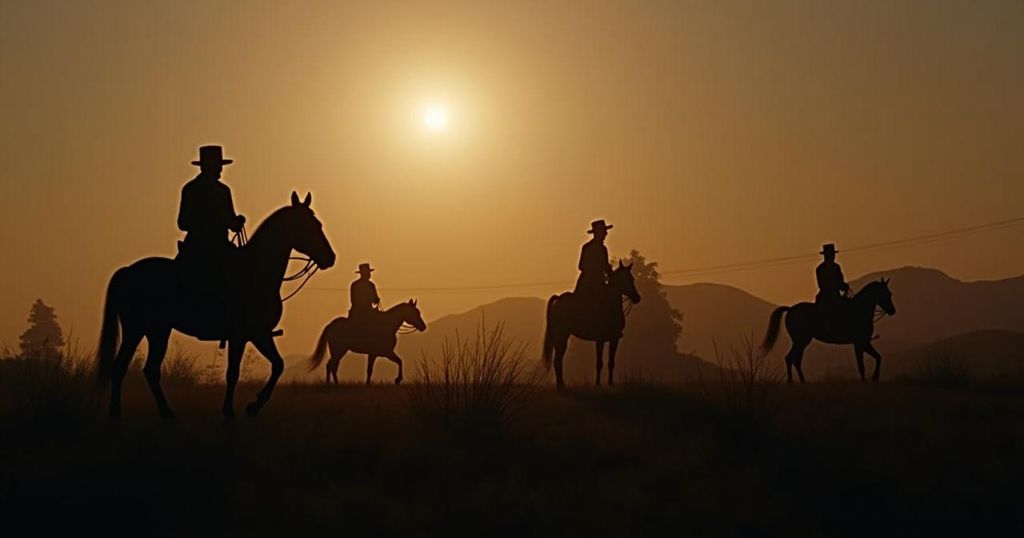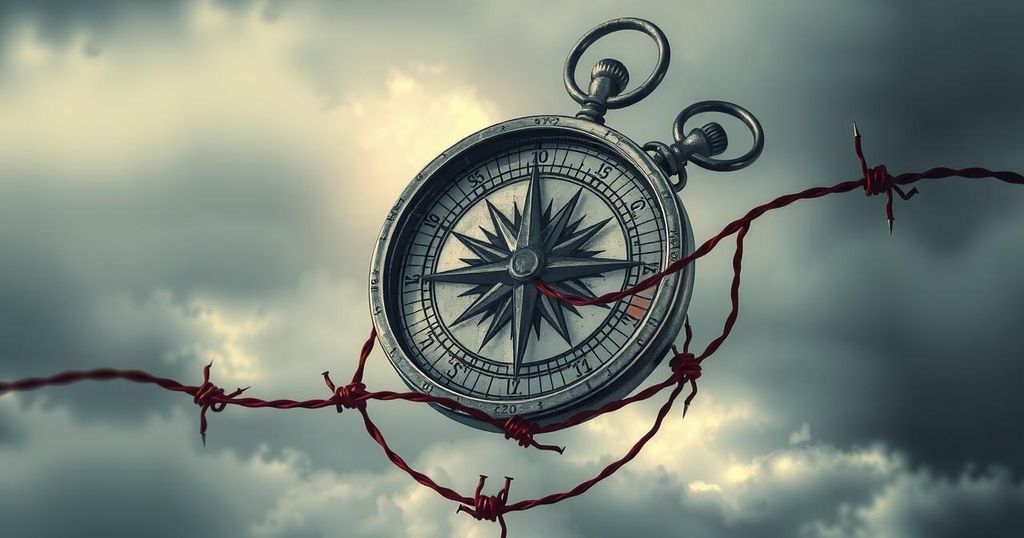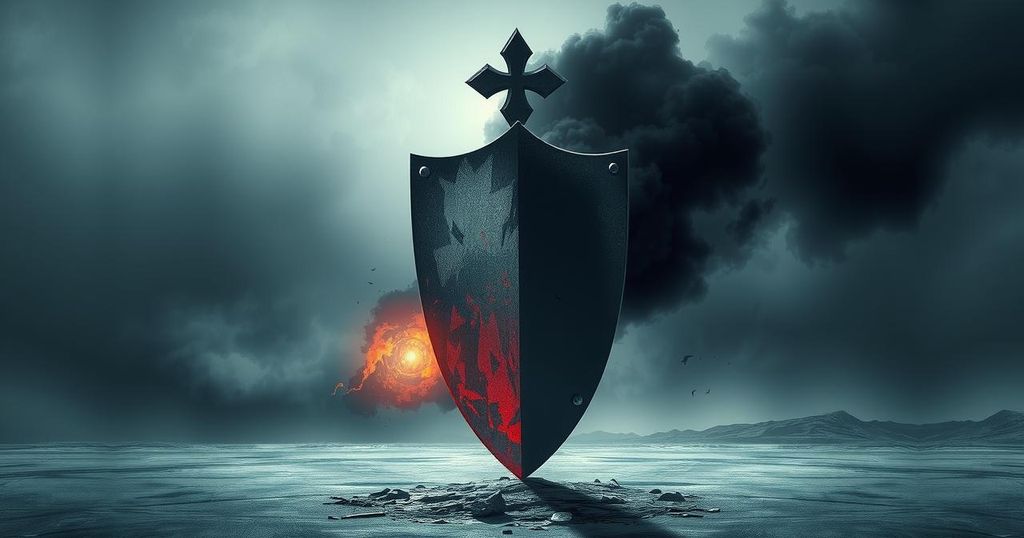Film Review: Alex Garland’s “Civil War” – A Reflection on Journalistic Ethics and Dystopia
“Civil War,” directed by Alex Garland, explores the complexities of journalistic ethics within a dystopian vision of the United States, focusing on four journalists navigating political turmoil and violence. The film critiques the motivations behind reporting and examines whether the role of the journalist should be to merely report or to advocate. Its nuanced narrative resists reductionist interpretations, ultimately inviting audiences to engage critically with the dilemmas faced by modern journalists.
The film “Civil War,” directed by Alex Garland, presents a unique exploration of journalistic ethics set against the backdrop of a dystopian United States. Garnering immediate divisiveness upon its U.S. premiere, the film is perceived through various lenses, classified as an alternative future history, a disturbing depiction of violence, or a spectacular visual narrative with possible underlying significance. However, it defies these simplistic categorizations, serving as a compelling thought experiment on the motivations and ethics of journalists in a collapsing society. The narrative follows four journalists: Lee, portrayed by Kirsten Dunst, a renowned photojournalist; Joel, a South American journalist; Sammy, an aging African-American writer; and Jessie, a young journalist eager to emulate Lee. The group immerses themselves in violent protests, capturing events while grappling with the inherent dangers and ethical dilemmas of their profession. Their journey leads them from chaotic clashes in New York City to the heart of a political upheaval in Washington, D.C. Garland utilizes the film to critique the mindset of journalists prioritizing scoops over the real-world consequences of the violence they document. The characters’ experiences reflect both the adrenaline and moral quandaries faced by war correspondents, offering a nuanced perspective that transcends mere sensationalism. Through deeply layered storytelling, “Civil War” examines the philosophical question of whether a journalist’s duty lies in merely reporting or in taking a stance. This duality resonates throughout a narrative that remains unsettling and thought-provoking, culminating in a chilling finale. Despite initial interpretations suggesting a reductionist political commentary, “Civil War” emerges as a profound inquiry into the ethics of storytelling in times of crisis. The film’s intent is further underscored by Garland’s deft world-building and character development, which together create an immersive cinematic experience. Ultimately, “Civil War” stands as a testament to the complexity of journalism in an ever-evolving political landscape, challenging audiences to interrogate their own beliefs about truth, responsibility, and the role of the storyteller.
The review of “Civil War” by Alex Garland delves into the implications of modern journalistic practices amid societal upheaval. This film, blending elements of speculative fiction with a grounded narrative, explores the moral quandaries faced by journalists reporting during crises. Set against a fictionalized future United States, it seeks to probe deeper questions of ethics and responsibility in journalism, rather than solely serve as a cautionary tale about political divisions.
In conclusion, “Civil War” by Alex Garland presents a multifaceted examination of journalism in a dystopian context, challenging audiences to reflect on the ethical responsibilities of reporters. By focusing on the experiences and motivations of its characters, the film transcends simplistic political interpretations, offering a rich narrative that ignites discourse on the nature of truth and storytelling during tumultuous times. Through its thought-provoking storyline and compelling character dynamics, “Civil War” affirms the significance of journalism in shaping societal narratives, while questioning the intentions behind such storytelling.
Original Source: www.rogerebert.com








Post Comment